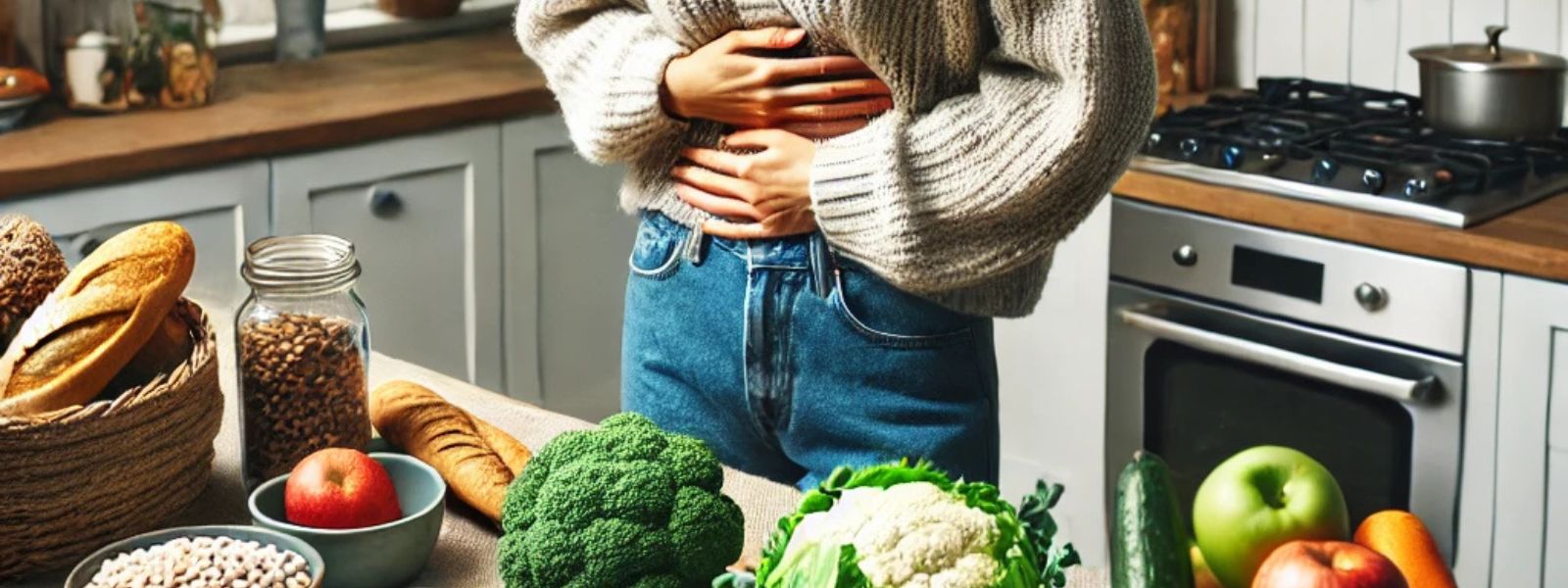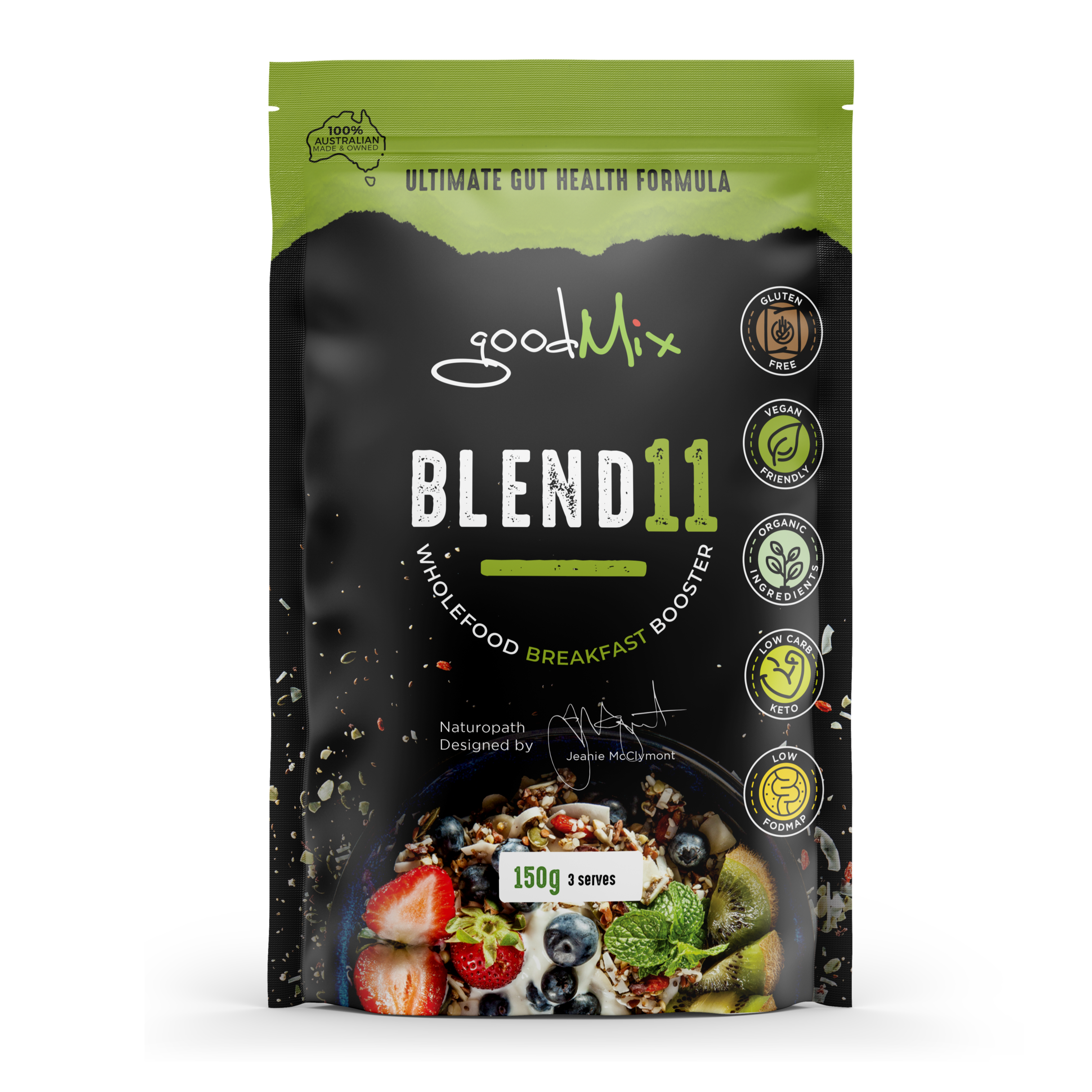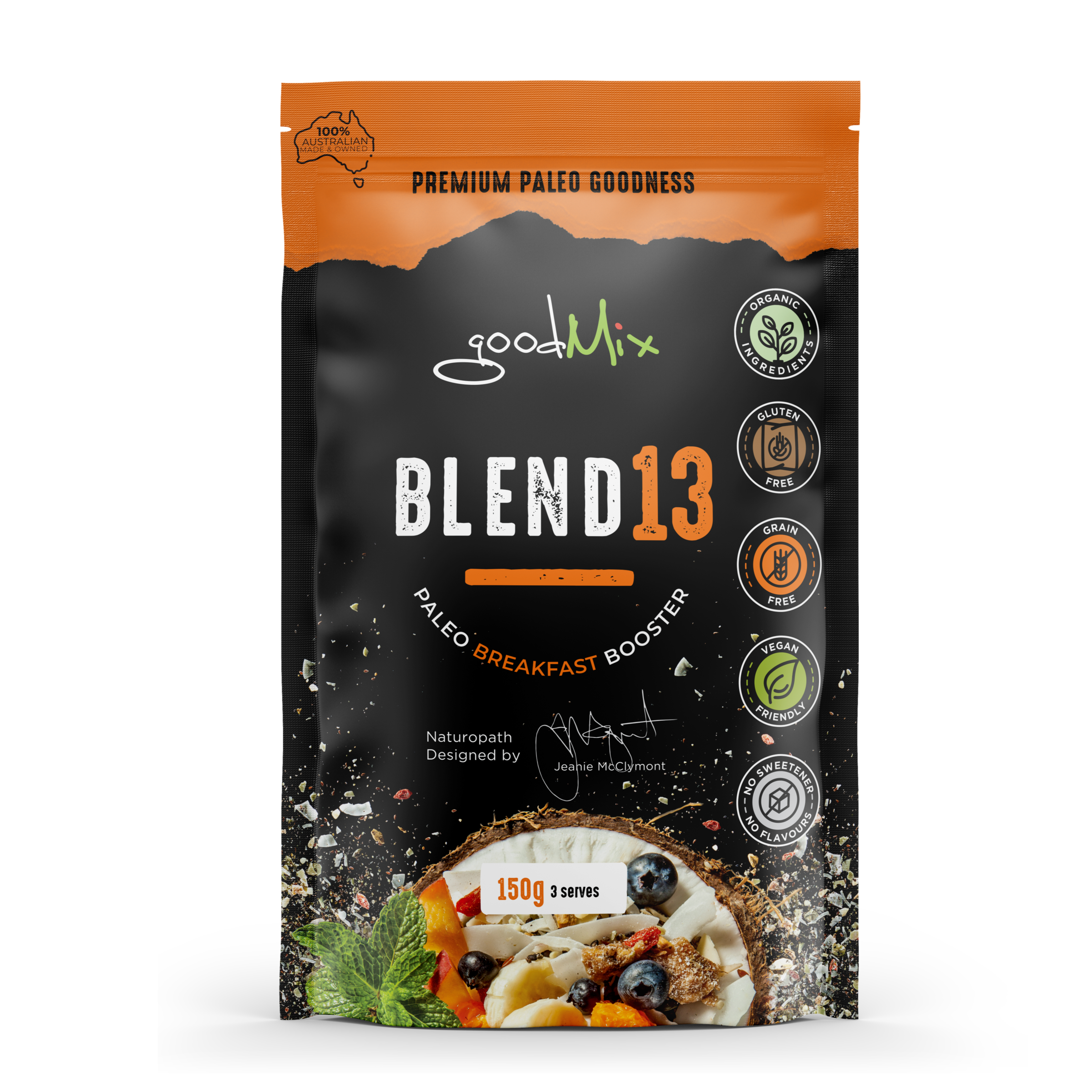
11 Foods That Cause Bloating & How To Reduce It
Bloating: a sense of gassiness or being distended; an uncomfortable build up of gassy or fluidy pressure in the abdomen
Fermentation and a reasonable amount of gas production are totally normal features of healthy human digestion. We all fart (yes, even your new girlfriend, you’ll see)! But gas production can go through the roof at times and become uncomfortable, embarrassing or excessive.
Bloating is a common digestive issue that affects so many people, often causing discomfort, tightness and sometimes even visible swelling in the tummy. It's frequently accompanied by gas, feelings of fullness and occasional pain and can make life a bit miserable if it’s happening constantly. But what are the foods that cause bloating and how can you get rid of bloating? Before diving into foods that can contribute to bloating, it’s essential to understand the root causes and symptoms of this issue.

What Causes Bloating?
While certain foods are notorious for causing bloating, there are other factors to consider. For instance, underlying conditions like irritable bowel syndrome (IBS), food intolerances and even dehydration or lack of exercise can lead to bloating. If you experience severe or chronic bloating including any of the below ‘red flags’ along with your bloating, consult with your doctor or trusted healthcare practitioner ASAP to rule out other medical conditions.
- unexplained weight loss
- major changes in bowel movements (for no known reason)
- if you’re older (let’s say 50+) & are not normally a ‘bloater’
For many, though, simple dietary adjustments can make a significant difference.
Let’s take a look at some of the most common foods that cause bloating and why they may be problematic for certain people.
11 Foods That Cause Bloating (And Why)
1. Beans and Legumes
Beans, chickpeas, lentils, and other legumes are high in fibre and contain complex sugars called oligosaccharides. These sugars are challenging for the digestive system to break down and can ferment in the gut, creating gas and causing bloating. Soaking and cooking beans well can help reduce bloating, but they may still be troublesome for many people.
2. Cruciferous Vegetables
Vegetables like broccoli, cauliflower, cabbage, and Brussels sprouts contain raffinose, a type of sugar that ferments in the gut. Although they’re packed with nutrients, they can lead to gas production, especially if consumed in large quantities or raw. Steaming or cooking these veggies can make them much easier on the digestive system.
3. Onions and Garlic
Onions and garlic are common triggers for bloating because they contain fructans—soluble fibres that may be difficult to digest for some people, particularly those with IBS. Fructans are also known to ferment in the large intestine, producing gas.
4. Dairy Products
Milk, cheese, yoghurt, and other dairy products contain lactose, a sugar that many people have difficulty digesting due to low levels of lactase enzyme. When lactose isn’t properly broken down, it ferments, causing bloating and gas. People who are lactose intolerant may need to avoid or limit dairy to reduce bloating.
Cow’s dairy also contains casein (a protein that many react to - similar to gluten. Sometimes lactose is the issue, sometimes casein, and sometimes both. Note that different dairy products contain hugely differing levels of both lactose and casein - for example butter has extremely low amounts of both, so is fine for most dairy sensitive people. See table below, with casein and lactose levels in common dairy products, to help you understand which dairy products may be more bloat inducing for you.
We’ve included a table below that shows the lactose and casein content in a range of dairy products.
5. Carbonated Drinks
Soft drinks and sparkling water contain carbon dioxide, a gas that can get trapped in the digestive system, leading to a feeling of fullness and bloating. Excessive consumption of carbonated beverages can lead to noticeable discomfort, so limiting these drinks is advisable for those prone to bloating. Even healthier sparkling beverages like kombucha can cause or aggravate bloating (with kombucha, it’s better to consume it in small doses for the probiotic health benefits, not daily by the bottle). Bear in mind that ‘low sugar’ or ‘zero’ soft drink options are often sweetened with artificial sweeteners (see more on them below).
6. Apples
While apples are rich in fibre and antioxidants, they also contain fructose and sorbitol, both of which are known to cause digestive issues in some people. The high fibre content in apples can also contribute to bloating, particularly if consumed in large amounts or on an empty stomach.
7. Mushrooms
Mushrooms contain polyols, a type of sugar alcohol that can be difficult for some people to digest. Polyols may pass through the gut unabsorbed, where they are then fermented by gut bacteria, creating gas and causing bloating. For those sensitive to this type of FODMAP, mushrooms can be particularly problematic.
8. Wheat and Gluten-Containing Foods
For those with gluten sensitivities or intolerances, wheat-based foods like bread, pasta, and baked goods can cause bloating and other digestive issues. Gluten can be challenging for many people to digest, leading to gas and discomfort (or more systemic symptoms like brain fog, immune issues or skin flare ups). For others, it’s the fibre and carbohydrates in wheat products that may be the issue.
Some people will tolerate ‘real’ sourdough much better, some will be fine with spelt, and for some - they are ok with European wheat products, but react to Australian and USA grown. This is thought to be due to different strains of wheat, different growing and harvesting methods (chemical use etc) and different food manufacturing techniques. The ‘least reactive’ gluten-containing bread choice seems to be real sourdough, organic spelt bread (if you’re a bloated bread addict, see if that swap makes a difference!)
9. Processed Foods
Highly processed foods are typically packed with salt, sugar, and other additives that can lead to water retention and bloating. Sodium, in particular, causes the body to retain water, which can lead to a puffy, bloated feeling. Vegetable oil and emulsifiers are other hidden culprits. Reducing or eliminating processed foods and choosing whole foods can alleviate bloating.
10. Artificial Sweeteners
Sweeteners like aspartame, sucralose, and sugar alcohols (e.g., xylitol, sorbitol) are very common in sugar-free products like chewing gum, protein powders, low-carb processed foods, lollies, gummies and soft drinks and can be challenging for the gut to process. These sugar alcohols can ferment in the colon, leading to gas and bloating (and diarrhoea if eaten to excess, watch out!)
11. Beer
Beer contains a multitude of gut triggers. Carbon dioxide, gluten, alcohol, and also fermentable carbohydrates, which are known to cause bloating and gas. Known acutely as "beer bloat," a couple of pints can be uncomfortable for almost everyone, and a permanently bloated ‘beer belly’ can result from the inflammation and continual digestive, hormonal and metabolic dysfunction caused by frequent alcohol use.
Many of the foods highlighted in this list are considered 'high FODMAP', which can exacerbate the symptoms of Irritable Bowel Syndrome.
How to Get Rid of Bloating: Effective Tips for Digestive Comfort
If bloating has become a regular nuisance, here are some practical tips to help manage and alleviate it:
1. Adjust Fibre Intake:
Fibre is essential for digestive health, but too much or too little can lead to bloating. Gradually increase your fibre intake to avoid overwhelming the gut, and ensure you increase hydration in line with fibre intake.
Our Gut Rehab Duo - Blend11 and Greens+Aloe - is the perfect natural solution to help keep bloating at bay and reset your gut, by feeding healthy gut bacteria and calming inflammation in the gut lining.
Packed full of diverse, fermentable fibre, Blend11 is nutrient-dense, gluten free and has helped thousands of people with digestive issues. Greens + Aloe is a simple, strong, clean, organic super greens powder with a therapeutic dose of pure Aloe Vera inner leaf gel, to help reduce inflammation and support a healthy gut and liver. Both products are low FODMAP certified (see below).
2. Try A Low FODMAP Diet
Found in a wide variety of foods, including grains, legumes, dairy products and certain fruits and vegetables, FODMAPs can draw water into the gut and ferment in the large intestine. This process may cause symptoms like bloating, gas, stomach pain, diarrhoea and constipation in sensitive individuals. The Low FODMAP diet was created by researchers at Monash University. It is centred around reducing the intake of these carbohydrates with the goal of identifying personal triggers for digestive symptoms.
3. Stay Hydrated:
Drinking enough water helps maintain proper digestion and can reduce water retention caused by excess sodium. It’s also crucial to ensure smooth, easy regular bowel movements (which will in itself decrease tendency towards bloating).
4. Eat Smaller Meals:
Large meals can stretch the stomach, causing bloating. Opt for smaller, more frequent meals to reduce digestive discomfort. But - also ensure you are not grazing all day. Your gut needs periods of fasting to reset itself, ready to properly digest the next intake.
5. Limit Carbonated Drinks:
Reducing soft drinks and sparkling water intake can help prevent gas buildup in the stomach.
6. Exercise Regularly:
Physical activity promotes healthy digestion, helping to reduce bloating by moving gas through the system, improving circulation to digestive organs and improving the tone and function of the connective tissue and muscles that hold our bowel and digestive organs in place, and help them move properly.
7. Consider Probiotics and Digestive Enzymes:
If certain foods consistently cause bloating, digestive enzyme supplements may help break down these foods more efficiently. Bear in mind that as we age, our secretion of stomach acid and digestive enzymes can become compromised, leading to increased bloating and food reactivity (after a previously bloat-free life). Medications can also cause decreased secretion of stomach acid and enzymes, and alterations in the bowel microbiome.
More Detail on Dairy: Lactose and Casein Content In Dairy Products
Here's a table with common dairy products, showing their approximate average casein and lactose content. It may be useful to help determine which has the bigger impact on your digestive system. Note - for many casein sensitive people, goat or sheep dairy or A2 dairy may be much better tolerated.

By understanding which foods cause bloating and making a few dietary and lifestyle adjustments, you can enjoy a more comfortable digestive experience. For some, minor changes make a world of difference, turning bloating from a daily challenge into a rare inconvenience.
Whether you're experimenting with meal sizes or reducing certain foods, these tips will hopefully help you discover what works best for your unique digestive system.




